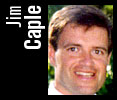 | |
 |
| Wednesday, May 8 Updated: May 12, 11:28 PM ET More than an ocean divide By Jim Caple ESPN.com |
||||||||||||||||||||||||||||||||||||||||||||||||||||||||||||||||
|
Seattle reliever Shigetoshi Hasegawa was the fourth Japanese player in major-league history, signing with the Angels two years after Hideo Nomo debuted for the Dodgers. He remembers nights in hotels when he had no one to talk with, when he had no one to tell him where his missing luggage was, when he was so frustrated and lonely that he almost cried.
There are 11 Japanese players in the majors today, including three with the Seattle Mariners, the most with one team. The Mariners, in fact, have nearly as many players who were born in Japan as those born in Latin America (five). "This was my dream," Hasegawa says of his two Japanese teammates, Ichiro Suzuki and Kazu Sasaki. "My first year, I was so alone. Nobody could talk to me. I dreamed about having another player to talk to, like the Spanish players do." Hasegawa doesn't need Japanese players to have a conversation anymore. He now speaks English well enough that he wrote a book teaching English to Japanese, and he says it has sold about 100,000 copies. Obviously, Hasegawa has immersed himself in English. Suzuki is taking that approach as well. Although he still uses a team translator when speaking for the record to reporters, he has learned enough that he can hold limited conversations in English and is getting better all the time. Sasaki, however, relies extensively on a full-time assistant/translator paid for by the Mariners. Allen Turner, an American who once planned to serve as a translator for Japanese golfers, spends so much time with Sasaki that he has his own uniform and locker with the Mariners. He dresses with Sasaki, takes the field for pre-game routines with him, sits with him in the bullpen and even occasionally warms up relievers in the pen. The two didn't know each other when Sasaki first arrived in Seattle two years ago but since have grown to become close friends. In addition to assisting Sasaki at the ballpark, Turner also helps the reliever and his family at home with any language issues. Sasaki says he relies on Turner because he doesn't want to be misunderstood. "In English or Japanese, sometimes you mean something else but it's taken a different way," he says through Turner. "That's what I'm afraid of. That my feelings come across wrong and I'm misunderstood." Sasaki insists he isn't missing out on anything by relying so extensively on Turner. "I'm able to communicate with my catcher. I'm able to talk with him on the mound," he says. "Baseball-wise, it hasn't stopped me from doing what I need to do. And if I spoke English, (Allen) would lose his job." A full-time, personal translator, however, is not a service that major-league teams provide for any Latin players. They are expected to learn English and if they don't, they often are considered stubborn -- or worse, stupid -- by reporters who speak only English. Personal translators are a service, however, provided for American players in Japan. And there are some other important differences regarding Japanese players here. English and Japanese don't share a common alphabet, so learning the respective languages is more difficult. Teams often provide rudimentary English courses for Latin players in the low minors. And Latin players usually have several Spanish-speaking teammates and coaches who they can rely on to help them adjust to life in the U.S. Hasegawa tackled the language barrier alone but he understands Sasaki's approach and says the closer is able to communicate fairly well with his fellow relievers. "Some Japanese people get nervous. They're a little afraid they'll be taken wrong or that they'll sound funny," Hasegawa says. "Ichiro was a big star and Kaz, too. That kind of guy won't want to be embarrassed. But I don't care. I wasn't a big star. I was just a regular person." Still, as a man who wrote a book on the subject, Hasegawa knows the best way to learn a language is to immerse yourself in it and speak it as much as possible. "You have to be brave. You have to have confidence," he said. To not do so is to cheat yourself of the very experience sought when moving to a foreign country. As Suzuki puts it, he could have demanded a personal assistant as well, but did not. "It wouldn't have been as enjoyable," he said.
Infield chatter
Win Blake Stein's money Question: Who was the first marquee major leaguer to sign with a Japanese team when he was a free agent? Answer: Bob Horner, who signed with the Yakult Swallows the winter after hitting 27 homers -- including four in one game -- for Atlanta in 1986. Jim Caple is a senior writer for ESPN.com. He can be reached at cuffscaple@hotmail.com |
| |||||||||||||||||||||||||||||||||||||||||||||||||||||||||||||||

